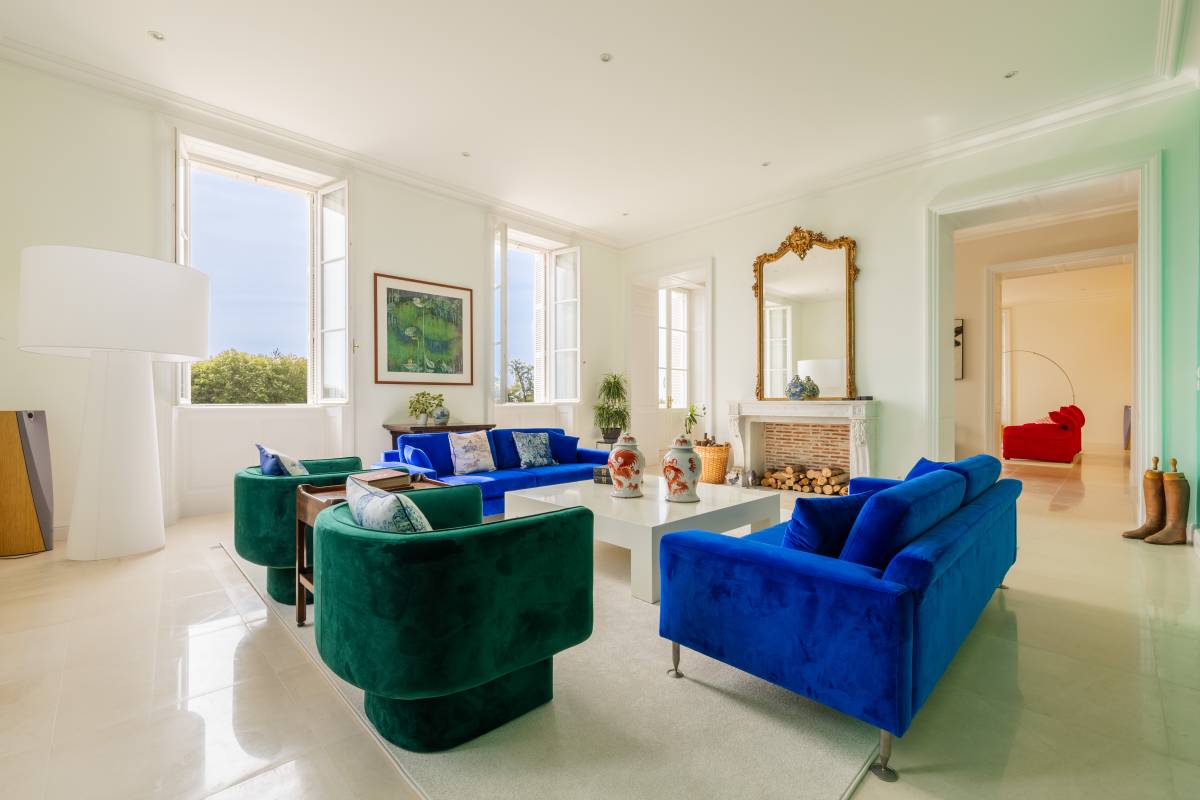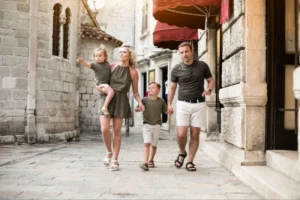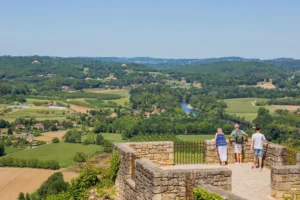Tired of cookie-cutter hotels and crowded resorts? Chateau holidays offer something different—space, history, and tranquility—all wrapped in timeless elegance. But booking the right château isn’t as simple as picking the prettiest facade.
Many travelers dive in without understanding the nuances, only to face issues like remote locations, unclear amenities, or unrealistic expectations.
This guide is here to solve that. It’s not a brochure filled with dreamy clichés—it’s a practical walkthrough for booking a château holiday that fits your needs, travel style, and budget.
Key Takeaways: How to Plan the Best Château Holidays
Here’s a brief overview of the following article:
- What Are Château Holidays: Château holidays are stays in historic French castles or manor homes, offering privacy, heritage architecture, and countryside living.
- Common Booking Challenges: Travelers often face issues like remote locations, unclear amenities, or mismatched layouts when booking without proper research.
- How to Choose the Right Region: Loire Valley, Dordogne, Provence, and Bordeaux each offer different landscapes, access, and experiences for château stays.
- What to Check Before Booking: Key factors include bathroom ratios, heating/cooling systems, kitchens, outdoor space, and accurate location details.
- Château de Lasfonds as a Standout Option: This private estate in Dordogne blends Neo-Gothic design with modern comfort, ideal for small groups seeking quiet luxury.
Contact us for pricing and to book your stay at Château de Lasfonds. Experience the charm of renting a castle in France.
What Are Chateau Holidays?
Chateau holidays are immersive stays in historic French castles or manor homes—often centuries old, beautifully restored, and privately owned. But don’t let the word “castle” mislead you. These aren’t fairy-tale relics behind ropes. Today’s château stays blend history with livability, offering unique accommodations that range from luxury suites to self-catered estates.
Chateau holidays differ from typical countryside rentals because of their setting, structure, and experience. You’re not just renting a home—you’re living inside a piece of heritage.
Stone turrets, vaulted ceilings, grand salons, and sweeping lawns are standard features, but each property has its own architectural identity and story. Some are part of France’s national patrimony; others are family-run retreats tucked behind 18th-century doors with modern upgrades. If you’re interested in more intimate and authentic estates, explore our curated list of Small French Châteaux that highlight charm over scale.
Not All Châteaux Are Alike—And That Matters
Bedroom at Chateau de Lasfonds
Château holidays come in several forms, and knowing the difference early helps you avoid booking something that doesn’t match your expectations. These are the three main types:
Privately Rented Châteaux
These are entire estates available for short-term rental. Ideal for families, weddings, or group retreats, they often include full access to the grounds, kitchens, pools, and multiple bedrooms. Some come with live-in caretakers or concierge services; others are completely hands-off.
Château Hotels or B&Bs
These operate more like boutique hotels, where you book a room or suite within the château. Perfect for couples or solo travelers, they usually offer daily breakfast, housekeeping, and optional add-ons like wine tastings or garden tours.
Self-Catering Gîtes on Château Grounds
Some châteaux have converted outbuildings—old stables, guest lodges, or gatehouses—into private rental units. These offer independence with access to château amenities like pools or walking trails, but at a lower cost and with less formality.
It’s About More Than Luxury—It’s About Space and Stillness
Unlike resorts or high-end hotels, chateau holidays prioritize privacy, scenery, and slow living. You might spend your mornings in a sunlit drawing room, afternoons by a secluded riverbank, and evenings under the stars—with no noise, schedule, or front-desk check-ins. That’s what makes the experience unforgettable.
Choosing the Right Destination for Chateau Holidays
Aerial view of Chateau de Lasfonds
The success of your château holiday depends just as much on where you stay as it does on the château itself. A beautifully restored estate in the middle of nowhere can become a logistical nightmare if you’re unprepared for isolation or long drives to nearby towns. Choosing the right region ensures your holiday aligns with your pace, interests, and accessibility needs.
France offers several château-rich areas with a distinct landscape, atmosphere, and cultural rhythm. Here’s how to choose the right one based on what you’re looking for:
Dordogne – Medieval Charm & Natural Beauty
Often overlooked by international travelers, the Dordogne is a treasure for those who want a peaceful, less commercial experience. It has hundreds of fortified châteaux, dramatic river valleys, and prehistoric caves.
Why choose it:
- Ideal for slow travel and off-the-beaten-path exploration
- Canoeing, hiking, and farmers’ markets abound
- Authentic French living with fewer crowds
Best for: Families, history lovers, nature-focused trips
Loire Valley – Classic Castles & Easy Access
Often called the “Valley of Kings,” the Loire is France’s most iconic château destination. Rolling vineyards, manicured gardens, and storybook riverside towns make it perfect for first-timers or those wanting a fairytale setting.
Why choose it:
- The densest concentration of historical châteaux in France
- Easy train access from Paris (1.5–2 hours)
- Great for wine lovers, cyclists, and cultural sightseeing
Best for: Romantic trips, cultural exploration, short breaks. If this kind of experience appeals to you, you’ll also find excellent inspiration in our guide to Small French Châteaux, which focuses on estates that combine heritage with intimacy.
Provence – Sun-Drenched and Soulful
Provence offers a completely different tone—lavender fields, olive groves, ochre-colored villas, and a Mediterranean rhythm of life. The region’s châteaux often have a rustic, countryside elegance rather than royal grandeur.
Why choose it:
- Ideal climate from late spring through fall
- Local markets, hilltop villages, and artisanal food scene
- Close to Marseille and Avignon airports
Best for: Wellness retreats, food and wine lovers, relaxed luxury
Bordeaux – Wine Estates & Grand Design
While known globally for its wine, Bordeaux is also a hub for château estates that blend 18th-century architecture with vineyard backdrops. Many offer wine tours and on-site tastings as part of the stay.
Why choose it:
- Access to prestigious wine regions (Médoc, Saint-Émilion)
- Refined estates with high-end services
- International airport and TGV train options
Best for: Wine-centric holidays, couples, small groups
Normandy & Brittany – Cool Coasts with Historical Depth
These northern regions combine coastal cliffs, pastoral landscapes, and a slower pace of life. The châteaux here are stately homes or manors, often near D-Day beaches or medieval abbeys.
Why choose it:
- Mild summer weather for those avoiding heat
- Easy drive from Paris
- Strong Anglo-French heritage and wartime history
Best for: Spring/autumn visits, coastal road trips, history enthusiasts
What to Consider Before Booking a Region
- Transport: Are you renting a car or relying on trains? Not all château regions are well-connected.
- Weather: Some areas (like Dordogne or Provence) can get hot in July–August. Shoulder seasons offer better comfort.
- Language & Tourism: English may not be widely spoken in less touristy regions—but that’s often part of the charm.
Choosing the right destination grounds your entire château holiday in a setting that works with—not against—your travel goals. Once that’s locked in, it’s time to focus on the château itself: what to expect, what to avoid, and how to read listings like a pro.
What to Look for When Booking a Chateau
Photos can impress, but they rarely show what it’s like to live in the space day-to-day. Booking the perfect château requires more than choosing an attractive building—you need to dig into the fine print and think through the daily experience, especially if you’re traveling with family or planning a special event. Here’s what to evaluate before you commit.
1. Modern Comfort in a Historic Shell
Châteaux are charming, but age comes with quirks. You need to ensure charm doesn’t get in the way of comfort.
- Check the heating and cooling systems. Many older châteaux still rely on traditional radiators or lack air conditioning entirely. In summer or winter, this can make the stay uncomfortable if you’re unprepared.
- Ask about insulation and window updates. Thick stone walls may seem temperature-proof, but many older buildings retain moisture or become drafty. Recently restored properties usually advertise modern insulation—look for that.
2. Bathroom-to-Bedroom Ratio
Bathroom at Chateau de Lasfonds
Insufficient bathrooms, especially during group stays, can become a major annoyance—one that’s not obvious in the listing headlines.
- Make sure there are enough bathrooms for your group. A château with 10 bedrooms but only 4 bathrooms can quickly lead to morning queues and lost time. Not all listings clarify this unless you ask directly.
- Private en-suites are a premium for good reason. Sharing bathrooms will wear thin if you’re traveling with multiple couples or hosting a wedding. Prioritize layouts that offer privacy and convenience.
3. Functional Kitchens Matter More Than Fancy Ones
Kitchens are often pictured beautifully but may not be equipped for real use, especially in self-catering châteaux.
- Look for recent renovations, not just style. An elegant but outdated kitchen might lack basic tools like a dishwasher, oven, or adequate cookware. Ask for a complete list of appliances and essentials before booking.
- Check the capacity if you’re cooking for a group. A small four-burner stove and compact fridge won’t work if you’re planning meals for 10+ people. Properties that host weddings or retreats should have industrial or dual appliances.
4. Outdoor Areas Should Match Your Lifestyle
It’s easy to assume every château comes with dreamy gardens and a pool—but not all do, and not all are safe or usable year-round.
- Sift through the pool setup. Heated pools are rare and often seasonal; unfenced pools may be unsafe for children. Ask about pool temperature control, fencing, and whether it’s maintained daily.
- Consider a usable outdoor living space. A château with 50 acres sounds great—but if there’s no shaded terrace, seating area, or flat land to relax on, much of that land may go unused.
5. Understand the Layout—Not Just the Size
Floor plans vary drastically, and a château that sleeps 12 could feel disjointed or impractical if the rooms are spread across wings or floors.
- Request a layout diagram when booking for groups. This helps you plan sleeping arrangements and ensure that elderly or mobility-impaired guests aren’t stuck climbing spiral staircases.
- Beware of “charming” but fragmented spaces. Split-level designs, narrow doorways, and disconnected communal areas can quickly turn charming into inconvenient.
6. Be Wary of Vague Location Descriptions
Terms like “close to town” or “minutes from wine country” are often misleading unless supported by specifics.
- Use Google Maps to verify the actual location. Some châteaux are 45+ minutes from the nearest store or gas station, and not all roads suit unfamiliar drivers. Always check the last-mile route.
- Confirm the distances to key services. If you’re traveling with children or older guests, being far from a hospital, pharmacy, or restaurant might pose a problem. Ask for driving times, not just kilometers.
7. Scrutinize Reviews for Hidden Issues
A château might have a five-star average, but repeated complaints about water pressure, cold interiors, or unresponsive hosts could be buried in the reviews.
- Sort reviews by “lowest first” to scan for patterns. If multiple people mention the same problem—even in otherwise positive reviews—it’s a red flag.
- Pay attention to the host’s response time and tone. A host who dismisses concerns or offers vague replies may not handle problems during your stay.
Booking a château is not the same as booking a hotel—it’s more personal, more flexible, and often more complex.
Focusing on how the space works in practice, not just how it looks in photos, will avoid discomfort and disappointment. Think function first, and you’ll unlock the real magic of château living.
Booking Tips: How to Secure the Best Chateau Holidays
Open dinning area in Chateau de Lasfonds
Booking a château isn’t like reserving a hotel room. There’s no standard platform, and properties range from owner-managed homes to fully staffed estates.
Availability disappears quickly—especially for weddings, summer holidays, and long weekends—so booking smart requires strategy, not speed. If you’re serious about making your château holiday seamless, here’s what matters most.
Start Early—Way Earlier Than You Think
- Châteaux book up fast, often a year in advance. Peak seasons like June to September are in high demand, especially for large group rentals. Even smaller properties with great reviews disappear quickly during school holidays and long weekends.
- The best value options vanish first. Waiting too long limits your choices to overpriced or underwhelming listings. Book at least 6–9 months out, more if you’re planning a wedding or event.
Use the Right Booking Platforms
Not all booking platforms are created equal. Some are dedicated to luxury château rentals and offer better search filters, verified listings, and more accurate descriptions. These platforms often personally inspect properties, so what you see is closer to what you’ll get.
General vacation rental sites may also feature château listings, but the quality and accuracy can vary. If you use these, be extra cautious—check guest reviews for consistency, ask for detailed photos, and confirm key information like amenities, floor plans, and cancellation policies directly with the host before booking.
Don’t Rely on Photos Alone—Ask Questions
- Every château has quirks—clarify them before you arrive. If something’s important to your stay (like pool heating, extra beds, or chef services), confirm directly with the owner or agent. Don’t assume anything.
- Ask for a detailed amenities list and floor plan. This helps you visualize room layouts, check accessibility, and confirm sleeping arrangements. Many owners have PDFs they’ll send if you ask.
Watch for Hidden Costs
- Headline pricing often excludes cleaning fees, tourist taxes, and security deposits. In France, these are often added later in the booking process, so check the full breakdown before clicking “Book.”
- Utilities and pool heating may incur extra charges. Heating the pool, especially in shoulder seasons (spring and autumn), can cost hundreds per week, so clarify whether that’s included.
Understand the Cancellation Policy and Payment Terms
- Many château rentals have stricter cancellation terms than hotels. Some are fully non-refundable after 60 days, while others offer partial refunds only if the owner rebooks your dates. Always read the fine print.
- Staggered payment plans are common for large bookings. Expect to pay 25–50% upfront, with the balance due 1–2 months before arrival. Make sure you receive a signed rental contract outlining these terms.
Verify the Host’s Responsiveness and Professionalism
- Good communication early on is a strong indicator of a smooth stay. If the host replies late, dodges questions, or avoids phone calls during booking, you’ll likely face the same issues on-site.
- Professional hosts provide a guest manual or welcome guide. This usually includes local tips, emergency numbers, appliance instructions, and check-in details—ask for one before arrival.
Secure the Booking with Confidence—Then Plan the Details
- Once you’ve booked, confirm everything in writing. Ask for a confirmation email, digital contract, and payment receipt. Store all communication in one folder for easy access during travel.
- Begin planning logistics early. Arrange rental cars, private chefs, airport transfers, or activity bookings as early as possible at the château. Many local services also get booked out in high season.
A château holiday isn’t just about the stay—it’s about how smoothly it’s planned. The best experiences come from proactive communication, smart research, and a willingness to ask the right questions.
Chateau Holidays for Special Occasions
Château holidays offer more than scenery—ideal for life’s significant milestones. Whether you’re planning a wedding, anniversary, or family reunion, a well-chosen château can create a private, memorable experience.
But hosting an event at a historic property requires more than just booking dates—you need to plan around space, logistics, and service availability.
Here’s how to do it right.
Weddings and Vow Renewals
- Not all châteaux are licensed for weddings. In France, legal ceremonies must occur at a local mairie (town hall). Most château weddings are symbolic or follow a civil service off-site. Confirm this with the owner in advance.
- Capacity and layout matter. You’ll need enough indoor and outdoor space for the ceremony, reception, and guest accommodation. Aim for venues with flexible dining options and a weather-safe backup plan.
- Ask about vendor policies. Some châteaux work with preferred suppliers—others allow you to bring your own. Confirm whether there are restrictions on noise, alcohol, or event duration.
Milestone Birthdays or Anniversaries
- Large dining areas and private kitchens are essential. You’ll likely want at least one formal meal with everyone seated together. Look for châteaux with banquet-style rooms or outdoor terraces that comfortably fit your group.
- Plan for downtime, too. Not everyone wants a packed schedule. Choose a property with enough on-site activities—like a pool, games, gardens, or local walks—to keep guests entertained between celebrations.
Reunions or Group Retreats
- Sleeping arrangements should be equitable. Avoid layouts where some guests get suites and others are stuck in annexes or shared bathrooms. A clear, balanced floor plan helps avoid tension.
- Shared spaces need to support real group living. Look for multiple lounges, large kitchens, and common areas where guests can gather without feeling cramped.
What to Book in Advance
- Caterers, musicians, and photographers get booked quickly. If you’re visiting during high season (May–September), secure local vendors as soon as you confirm the château.
- Check for early arrival options. If guests are flying in from abroad, ask about check-in flexibility or nearby lodging for overflow before and after the main event.
Clear Communication Prevents Problems
- Set expectations early. Share a group itinerary, dress code (if any), and transportation details well in advance. Many guests may be unfamiliar with château etiquette or rural travel.
- Request a guest guide from the property. Many hosts provide PDFs with rules, contacts, directions, and local recommendations—helpful for your group and essential in remote locations.
Château holidays make meaningful moments feel even more personal—but only when the logistics support the occasion. With the proper planning, these properties become more than a place to stay—they become the setting for memories that last for decades.
Château de Lasfonds: Rent a Castle in France with Privacy, Comfort, and Character
A colorful sitting area at Chateau de Lasfonds
Tucked into the rolling hills of Dordogne, Château de Lasfonds is a private 19th-century estate designed for those seeking space, quiet, and authentic French living.
Ideal for small groups of up to 18 guests, the château offers a rare balance of old-world charm and modern-day comfort—all on a secluded 6.5-hectare property.
You’re not just renting a castle in France—you’re getting a fully equipped retreat where you can truly disconnect.
Highlights of the stay include:
- Biking trails, kayaking rivers, and hiking paths right outside your door
- On-site private chef dinners and French cooking classes by request
- Heated pool, games room, and two kitchens for relaxed group living
- Outdoor yoga, stargazing, and in-room massages are available through local partners
- Access to Dordogne’s food markets, truffle farms, and nearby wine regions
- Day trips to Bordeaux, Cognac, Angoulême, and prehistoric cave sites
Whether planning time with family, a creative sabbatical, or a low-key celebration, Château de Lasfonds offers the space—and silence—to do it your way.
Book your stay at Château de Lasfonds and experience the true meaning of château holidays.
Frequently Asked Questions about Chateau Holidays
Château rental prices vary widely. Smaller properties may start around €4,000–€7,000/week, while luxury estates like Château de Lasfonds range from €14,900–€19,980/week, depending on the season and amenities included.
Focus on layout, bathroom-to-bedroom ratio, heating/cooling systems, kitchen equipment, and access to transport. Don’t book based on photos alone—always request a floor plan and amenity list.
Yes, in most cases. Châteaux are often located in the countryside and have limited public transport. Renting a car is the best way to explore nearby villages, vineyards, and historical sites.
Late spring (May–June) and early autumn (September–October) offer ideal weather, fewer tourists, and lower prices than peak summer. For the best options, book 6–12 months in advance.
Yes. Château de Lasfonds accommodates up to 18 guests and is available for intimate weddings, creative retreats, and private events. On-site and local vendors can be arranged upon request.
Many are, including Château de Lasfonds. Look for properties with child-safe features, fenced pools, and space for play. Parents should still supervise children around fireplaces, antiques, or open grounds.
The estate features a heated pool, gym, game room, gardens, high-speed Wi-Fi, and modern kitchens. Some suites also include private entrances and garden-facing views.
Not necessarily. Hosts at most high-end châteaux speak English or provide materials in English. However, some nearby restaurants or markets may not—so learning a few basics helps.
Châteaux are historic estates—often larger, older, and more architecturally complex than villas. They offer character and countryside seclusion, while villas are more modern or coastal.
Yes. Guests can request services like private chefs, massages, language tutors, wine tours, and more through Lasfonds’ concierge partners, making it a fully tailored experience.




